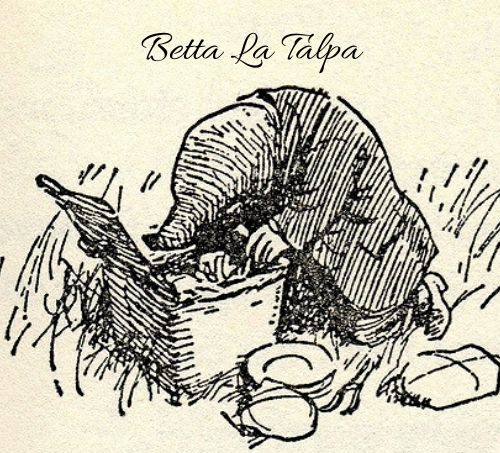In a world of heroes, be a superhero. Be special.
And how to be special, if everybody has superpowers? Being without special powers, of course. Be unconventional.
Chino Chakanga, who I thank for this opportunity, has pictured a brilliant literal universe with a simple idea. Many years after Diana Wynne Jones’ The Lives of Christopher Chant, where the young main character is a sad boy without powers in a world of magicians and gods, Chakanga has had a beautiful idea. Hope suffers from Ability Dysfunction Spectrum Disorder (ADSD), which has two levels, High-Functioning AD and Classic AD, but she is in the third deepest level, known as Severe AD or Remo Syndrome which has been found in her for the first time in history.
Do you remember something from this letters? For sure, you’ll know ASD or Autistic Spectrum Disorders and you must know that people suffering of it are special, exactly like Hope. She cannot be invisible or dominate flames, she’s not really strong and she can’t fly anyway, but she learns accepting herself as she is, without superpowers but sincere, brave and affordable.
The obstacles Hope faces during his adventures are the same as autistic people or simply people not conventional lives each day: she can’t do many things because superheroes are normal and she’s not and the city is for them, not for her; her friends slowly want to be cool, so they leave her and she has to stand solitude.
With a clear writing style, Chakanga teach us a good lesson about diversity, even if I would have preferred a style more adapted to a 15-years girl.
If you’re a young adult, your sibling are or maybe you like YA narrative, this book is definitely for you. And if you want to know how the diversity fells, read it. So, what are you waiting for? We all can be Avengers, if we want.
What superpowers would you like to have?
Hugs,
Betta La Talpa
TRADUZIONE ITALIANA
In un mondo di eroi, sii un supereroe. Sii speciale.
E come si può essere speciali, se tutti hanno superpoteri? Essere senza poteri, naturalmente. Sii non convenzionale.
Chino Chakanga, che ringrazio per l’occasione, ha dipinto un brillante universo letterario con una semplice idea. Molti anni dopo Le vite perdute di Christopher Chant, dove il giovane protagonista è un ragazzo triste senza poteri in un mondo di maghi e dei, Chakanga ha avuto una splendida idea. Hope soffre di Ability Dysfunction Spectrum Disorder (ADSD), che ha due livelli, AD ad alto funzionamento e AD classico, ma lei si trova nel ben più grave terzo livello, conosciuto come AD grave o Sindrome di Remo che è stata diagnosticata in lei per la prima volta nella storia.
Ti ricorda qualcosa? Ma certo, conoscerai il DSA o Disordine dello Spettro Autistico and saprai che le persone che ne soffrono sono speciali, proprio come Hope. Non può diventare invisibile o governare le fiamme, non è particolarmente forte e certamente non può volare, ma impara ad accettarsi com’è, senza superpoteri ma sincera, coraggiosa e affidabile.
Gli ostacoli che Hope affronta durante le sue avventure sono le stesse che le persone autistiche o semplicemente quelle meno convenzionali vivono ogni giorno: non può fare molte cose perché i supereroi sono normali e lei non lo è e la città è per loro, non per lei; i suoi amici pian piano vogliono essere fichi, così la lasciano e lei deve sopportare la solitudine.
Con uno stile chiaro, Chakanga ci dà una buona lezione sulla diversità, anche se avrei preferito uno stile più adatto a una ragazzina di 15 anni.
Se sei un giovane adulto, i tuoi fratello lo sono o forse ti piace il genere YA, questo libro è sicuramente per te. E se vuoi sapere come ci si sente a essere diversi, leggilo. Che aspetti? Tutti possiamo essere gli Avengers, se lo vogliamo.
Che superpoteri vorresti avere?
Un abbraccio,
Betta La Talpa
Ti piace quello che leggi? Sostienimi su Patreon, Ko-fi o Tipeee!
RIPRODUZIONE RISERVATA


Mi segno questo libro stando a scuola e facendo senza grandi conoscenze , se non pratiche, insegnante di sostegno può essere utile . Puoi chiarire se non è adatto ai 15 enni? io sto alle medie quindi….grazie
"Mi piace""Mi piace"
È assolutamente indicato per ragazzi fra le medie e le superiori, massimo 117/18 anni. L’unico aspetto negativo è che non mi risulta sia stato tradotto in italiano, nonostante sia un inglese scolastico, comprensibile anche agli studenti. Grazie per l’interesse!
"Mi piace""Mi piace"